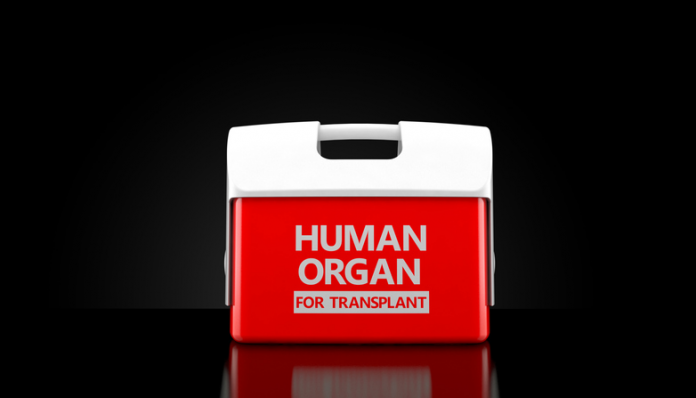News articles of deaths from tragic circumstances recently have mentioned how the victims became organ donors.
Patients must exhibit signs of life for hospitals to harvest viable hearts, lungs, entire livers, and both kidneys.
Life Support After Death
Recent reports include that of 38-year-old, Aimee Sachs, who died after suffering two strokes within a matter of weeks.
On June 2, the Tallahassee Democrat, where Sachs worked as a reporter, described how the family was told Sachs had “locked-in” syndrome. Through blinking, Sachs indicated she wanted to become an organ donor after being told by her father, “You’ll always have the ability to think and feel things, but you’re trapped in your body.”
On June 15, the New York Post reported how Mia Kanu, a 23-year-old college student from Michigan, became a live organ donor by being put back on life support after being pronounced dead. Police are investigating Kanu’s death as a homicide after she was found lying on a road after being ejected from a car.
On August 3, the New York Post published an article on how Ashley Summers, a 35-year-old mother, wife, and mother of two children, donated her heart, liver, lungs, kidneys, and long bone tissue, “ultimately saving five other lives,” according to her family. Summers suffered from water toxicity, after consuming too much water in a short period of time.
Locked-in Author
Conscious patients and distraught families are asked to make these choices at the worst time, says
Heidi Klessig, M.D., a retired anesthesiologist who writes and speaks on the ethics of live organ transplantation.
“The sad part is that disabled people are so often given bad information and rushed into a life-ending decision,” said Klessig.
“Jean-Dominique Bauby was an editor for the French ELLE magazine when he suffered a brainstem stroke and developed locked-in syndrome,” said Klessig. “He wrote an amazing book, The Diving Bell and the Butterfly, about his incredible life of the mind while his body was immobile. The book was also made into a movie. Was the reporter or her family given this information?
‘Concealed Practice’
Klessig says a paper published in 2009 on the National Library of Medicine website may provide context to the recent cases.
“Since the concept of brain death was enacted into the Uniform Determination of Death Act (UDDA) and brain death was declared as equivalent to human death (National Conference of Commissioners on Uniform State Laws, 1981), this act has been a driving force to permit organ procurement in heart-beating donors,” the authors wrote.
The authors concluded, in part, “Heart-beating or non-heart-beating organ procurement from patients with impaired consciousness is de facto a concealed practice of physician-assisted death, and therefore, violates both criminal law and the central tenet of medicine not to do harm to patients.”
AnneMarie Schieber (amschieber@heartland.org) is the managing editor of Health Care News.





















